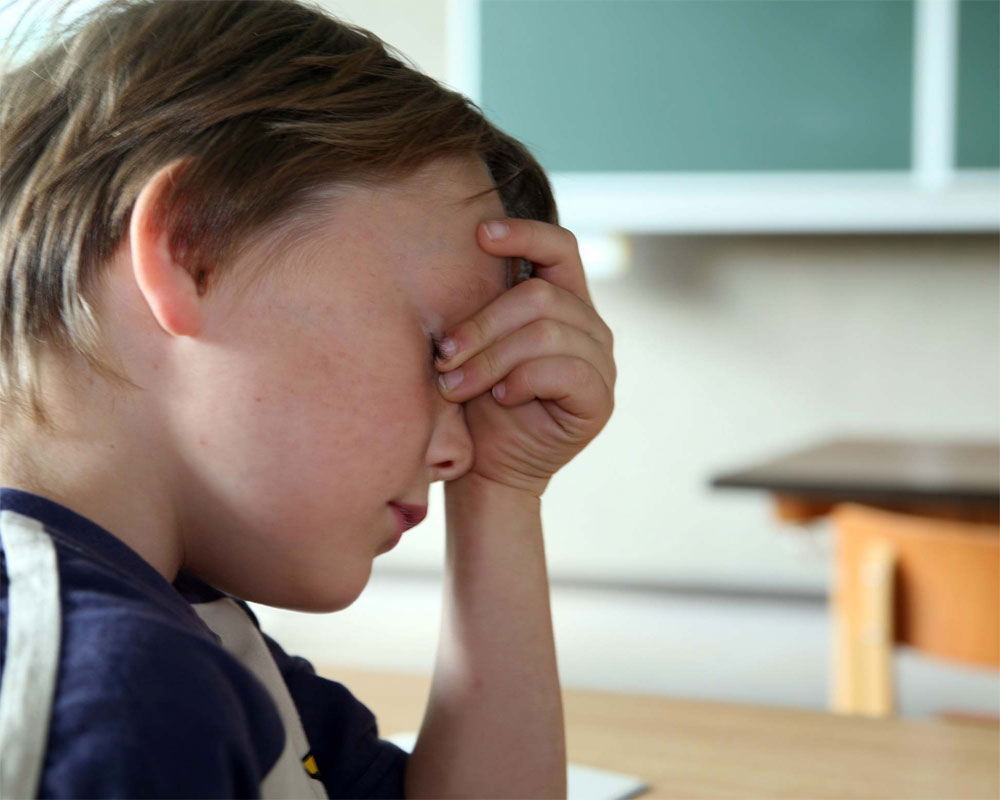Scientists have developed a wearable tool that can identify anxiety and depression in young children, paving the way for early detection and treatment of such disorders.
Anxiety and depression are surprisingly common among young children -- as many as one in five kids suffer from one of them, starting as early as the preschool years.
However, it can be hard to detect these conditions, known as "internalising disorders," because the symptoms are so inward-facing that parents, teachers and doctors often fail to notice them.
If left untreated, children with internalising disorders are at greater risk of substance abuse and suicide later in life.
"Because of the scale of the problem, this begs for a screening technology to identify kids early enough so they can be directed to the care they need," said Ryan McGinnis, a biomedical engineer at the University of Vermont in the US.
Researchers develop a tool that could help screen children for internalising disorders to catch them early enough to be treated.
The team used a "mood induction task," a common research method designed to elicit specific behaviours and feelings such as anxiety.
The researchers tested 63 children, some of whom were known to have internalising disorders.
Children were led into a dimly lit room, while the facilitator gave scripted statements to build anticipation, such as "I have something to show you" and "Let's be quiet so it doesn't wake up."
At the back of the room was a covered terrarium, which the facilitator quickly uncovered, then pulled out a fake snake.
The children were then reassured by the facilitator and allowed to play with the snake.
Normally, trained researchers would watch a video of the task and score the child's behaviour and speech during the task to diagnose internalising disorders.
For the study published in the journal Plos One, the team used a wearable motion sensor to monitor a child's movement, and a machine learning algorithm to analyse their movement to distinguish between children with anxiety or depression and those without.
After processing the movement data, the algorithm identified differences in the way the two groups moved that could be used to separate them, identifying children with internalising disorders with 81 per cent accuracy -- better than the standard parent questionnaire.
"The way that kids with internalising disorders moved was different than those without," said McGinnis.
The algorithm determined that movement during the first phase of the task, before the snake was revealed, was the most indicative of potential psychopathology.
Children with internalising disorders tended to turn away from the potential threat more than the control group.
It also picked up on subtle variations in the way the children turned that helped distinguish between the two groups.
This lines up well with what was expected from psychological theory, researchers said.
Children with internalising disorders would be expected to show more anticipatory anxiety, and the turning-away behaviour is the kind of thing that human observers would code as a negative reaction when scoring the video.
"Something that we usually do with weeks of training and months of coding can be done in a few minutes of processing with these instruments," said Ellen McGinnis, a clinical psychologist at the University of Vermont.
The algorithm needs just 20 seconds of data from the anticipation phase to make its decision, she said.
The next step will be to refine the algorithm and develop additional tests to analyse voice data and other information that will allow the technology to distinguish between anxiety and depression.
The ultimate goal is to develop a battery of assessments that could be used in schools or doctors' offices to screen children as part of their routine developmental assessments.


























